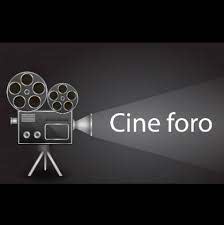SIGNIS Uruguay organized online cinema-forums for teachers

Sebastián Sansón Ferrari - SIGNIS Uruguay
A group of teachers was reunited with Mag. Carla Lima , president of SIGNIS Uruguay, Association of Catholic Communicators of Uruguay, within the framework of a master's degree in Audiovisual Education at the Latin American Faculty of Social Sciences (FLACSO).
They contacted her to request the possibility of making online film-forums , to know the methodology and to practice it.
The call was made in primary and secondary education, every Tuesday. To date, three sessions have been held and another three are planned. The first film was "Los coristas", chosen by Lima.
At the end, in the evaluation, they were asked to identify the steps of the methodology. "They discovered it recognizing the procedure they had gone through, with what they had experienced," he explains.
The next productions were selected from a list. The modality is completely participatory. 120 teachers participated, divided into two subgroups of 60 each.
Lima points to the fluid contact between the members. They communicate through a group in which they raise doubts and exchange their experiences.
There they also share their experiences in approaching movies. In addition, for each tape, they make a sheet that includes all the contributions arising from the application.
Teachers have valued the space in positive terms, in the sense that this has helped them to work "other tools that are not as tedious as Zoom" and with the CREA platform, which costs them.
So, inviting them to watch a movie to address some topics, such as "The boy who dominated the wind", among other films, "allows them to deal with certain challenges from another perspective that does not give them a written job," says Lima, president of SIGNIS Uruguay.
SIGNIS Uruguay has extensive experience in carrying out this type of activities.
Several sites in the country that hosted the activity, such as the Cristo Rey Interdiocesan Seminary in Montevideo, the youth centers in the Borro neighborhood located in the capital, the cinema club in the parish of Lourdes in San José, among others.
Conferences were also held at the Catholic University of Uruguay, with students from the careers of Psychology and Communication.
Lima points out that the methodology of the cinema-forums is easy to appropriate, especially for the new generations, who integrate it more naturally.
In addition, it specifies that it has received testimonies from people who apply it. For example, she says that a pastor uses it at different times with his community.
Another of the riches of these sessions is the focus: the analysis of film productions from values, both Christian and universal, promoting the reflection of the participants on transcendent issues






